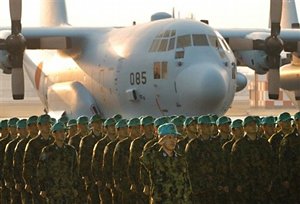There is new fodder for the tortured torture debate in the U.S. New evidence is emerging that the government views secret ex ante determinations, presumably by the government itself, of whether harsh treatment of detainees may be justified by reason of necessity.  It is useful to compare this position with the 1995 judgment of the Supreme Court of Israel, in which the Court rejected government arguments that it could find ex ante authority for harsher interrogation techniques in the principle of necessity.
It is useful to compare this position with the 1995 judgment of the Supreme Court of Israel, in which the Court rejected government arguments that it could find ex ante authority for harsher interrogation techniques in the principle of necessity.
An article in The New York Times on Sunday described how recent letters to Congress from the Department of Justice (DoJ) explain that the government reserves the right to decide on a case-by-case basis what interrogation methods would violate international law standards against mistreatment of detainees. Specifically, the letters from the DoJ state that where harsher interrogation measures are “undertaken to prevent a threatened terrorist attack, rather than for the purpose of humiliation or abuse” then such measures could be determined to be not “outrageous” or otherwise in violation of international standards.

